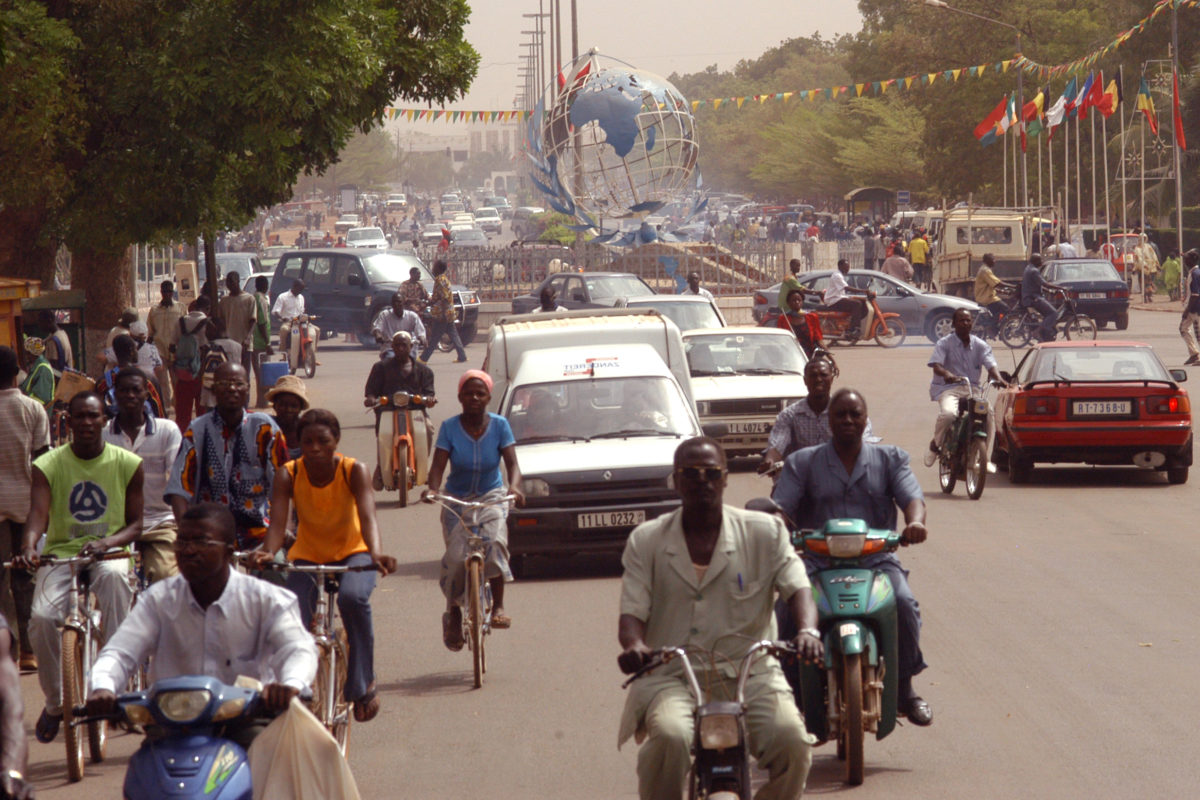Speaking last week at the Powering Africa Summit in Washington, D.C., Enoh Ebong, acting director of the U.S. Trade and Development Foundation (USTDA) announced the signature of a grant for a feasibility study for two 17 MW solar PV plants in Burkina Faso. USTDA has provided details for the projects. However, there is also plenty more solar activity taking place in the African country.
33 MW solar PV plant
The construction of a 33 MW PV plant in Zagtouli, is well under way, and according to France’s Development Agency (AFD), a public institution, it will conclude in August 2017 at the latest. This is 14 months after the start of construction in July 2016. Upon its completion, the Zagtouli plant will supply 5% – about 55 GWh per year- of the country’s total electricity consumption at a very competitive price, said the AFD.
Burkina Faso’s 33 MW PV plant is financed by the AFD and the European Union with €22.5 million and €25 million funds respectively.
The European Union had announced the funding in 2012 and the project was expected to already be operational by now. The implementation of the project shows how slow and tricky the development of renewable energy in Africa can be.
Nevertheless, AFD has said that the cost of construction and operation for the first two years of the 33 MW plant is half the initial estimates made in 2010. The solar plant “will produce energy at an extremely low price compared to Sonabel’s [Burkina Faso's national electricity company] current cost price and will thereby contribute to improving its financial situation,” added AFD.
State-owned electricity companies in Africa often operate in dire financial situations, and this is one of the greatest inhibitors of renewable energy on the continent.
Solar-powered cinema and households
A new cinema inaugurated in February in Burkina Faso’s capital Ouagadougou also makes use of solar energy. The Canal Olympia Yennenga cinema, which can seat up to 300 people, will run on solar energy, said France’s Canal Plus group, which owns the cinema. Canal Plus plans to build about 50 other cinemas in Francophone countries across Africa where the group operates.
The new solar-powered cinema in Ouagadougou co-hosted Fespaco, Africa’s top film festival, that runs between 25th February and 4th March, screening about 160 films for its 100,000 visitors.
Speaking at last year’s African Energy Forum in London, Burkina Faso’s minister of energy, mines and quarries Oumar Dissa, said many opportunities for the solar sector lie specifically within the household segment. 80% of our households will be asked to fit renewable energy hybrid systems, e.g. using solar systems, said Dissa, adding that the ministry is also planning solar installations for remote communities.
Presently, only 15% of the Burkinabe population has access to electricity, a figure that drops to 3% in rural areas.
This content is protected by copyright and may not be reused. If you want to cooperate with us and would like to reuse some of our content, please contact: editors@pv-magazine.com.



By submitting this form you agree to pv magazine using your data for the purposes of publishing your comment.
Your personal data will only be disclosed or otherwise transmitted to third parties for the purposes of spam filtering or if this is necessary for technical maintenance of the website. Any other transfer to third parties will not take place unless this is justified on the basis of applicable data protection regulations or if pv magazine is legally obliged to do so.
You may revoke this consent at any time with effect for the future, in which case your personal data will be deleted immediately. Otherwise, your data will be deleted if pv magazine has processed your request or the purpose of data storage is fulfilled.
Further information on data privacy can be found in our Data Protection Policy.